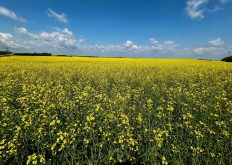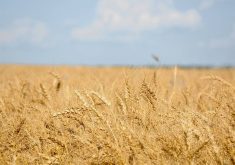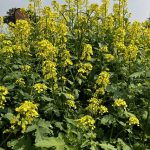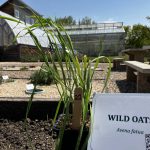The maker of the best-known brand of glyphosate has put up a Canadian version of an online service it says will help Prairie farmers gauge the risk of glyphosate-resistant weeds appearing in their fields.
The news comes as Monsanto Canada’s U.S. parent plans to pare back its various brands of Roundup herbicide and pledges to create “a new offering of solutions to address the need for a simple weed resistance package.”
Monsanto Canada on Tuesday launched a Western Canada-tailored version of weedtool.com, a service it first launched in the U.S. in 2007 and plans to roll out to farmers in Eastern Canada this fall.
Read Also
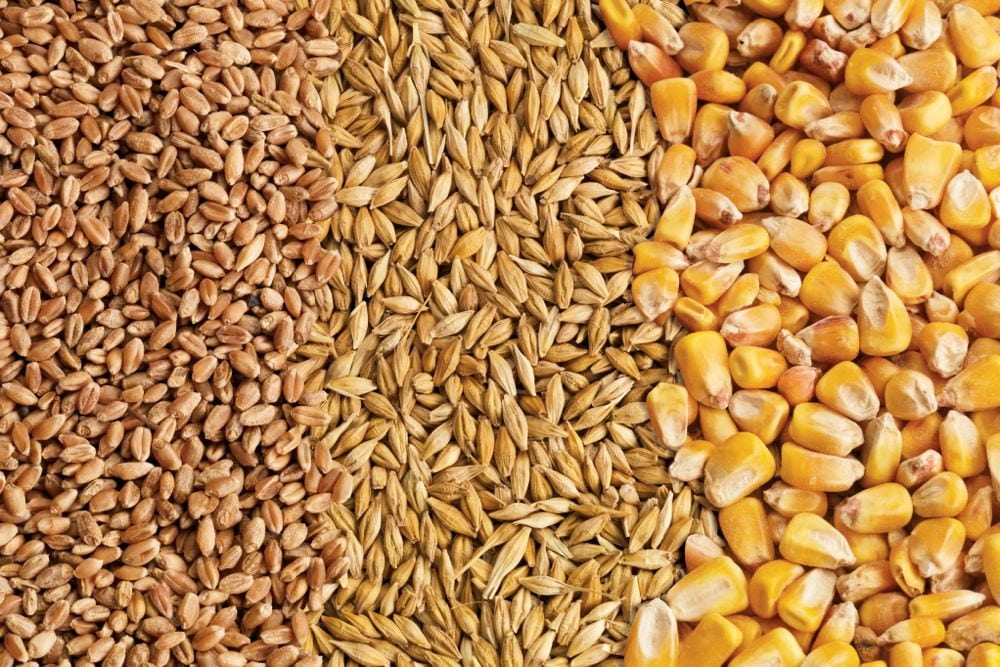
Feed Grains Weekly: More consideration being given to U.S. corn
There’s beginning to be a shift within the Canadian Prairie feed market towards importing United States corn, said Darcy Haley, vice-president of Ag Value Brokers in Lethbridge.
The Winnipeg-based firm said the site’s goal is “to help farmers gauge their risk of developing glyphosate-resistant weeds within their farming operation and provide them with strategies to better manage those risks without limiting yield potential.”
“Roundup brand herbicides are an important part of a farmer’s weed control program and we want to ensure they remain a sustainable solution for farmers well into the future,” Sean Dilk, technology development lead within Monsanto Canada’s crop protection division, said in the company’s release.
“Numerous factors” on a farm can contribute to the risk level for glyphosate-resistant weeds, the company said, but the site “accounts for these factors by having growers answer 10 questions.”
The web tool then calculates the risk of developing glyphosate resistance on an “individual field-by-field basis” and lays out recommendations for best management practices (BMPs) for reducing that risk.
Academics from Agriculture and Agri-Food Canada and the Universities of Alberta, Saskatchewan and Manitoba took part in the site’s development, Monsanto said.
“Having had the opportunity to work on the development of this new assessment tool, I am confident in its ability to help farmers assess their risk and allow them to make any necessary changes in their farming operations,” Hugh Beckie, a research scientist and herbicide resistance specialist with AAFC in Saskatoon, said in Monsanto’s release.
“Even though we have not yet seen a case of a glyphosate-resistant weed in Western Canada, weed resistance is a real threat to the western Canadian cropping system,” he said. “Glyphosate is such an important resource that it needs to be kept sustainable.”
“Complementary chemicals”
Monsanto Canada’s site launch follows a move announced last Thursday by its St. Louis-based U.S. parent, Monsanto Co., saying it plans to “reposition” the U.S. company’s Roundup business.
Monsanto Co. cited “fundamental structural changes” in the larger glyphosate sector — mainly a “sustained oversupply” of glyphosate. More specifically, the company said, China’s glyphosate production capacity is “profoundly overbuilt.”
In response, the U.S. parent said it will “drastically narrow its Roundup brand portfolio to offer farmers a simple, quality product that meets their needs at a price closer to (generic glyphosates).”
The company’s glyphosate products would then focus specifically on “supporting (Monsanto’s) core seeds-and-traits business,” such as its Roundup Ready glyphosate-tolerant crops.
Monsanto Canada — whose herbicide portfolio currently includes Roundup WeatherMax, Roundup Transorb HC (sold in Western Canada) and Roundup Ultra2 (in Eastern Canada) — hasn’t yet said how or if the U.S. company’s plans will affect its product offerings.
The U.S. firm said it also plans to “work with key U.S. distributors to combine a simplified Roundup brand with a package of complementary chemicals to create an affordable and easy-to-use weed control regimen.”
“We’re going to bring simplicity to weed management,” Monsanto CEO Hugh Grant said in the parent firm’s release last Thursday. “Weed resistance is real, but managing it doesn’t have to be complex. The right tools exist today, and we’re going to make it easy and more affordable for farmers to access those tools as a package, with Roundup as the cornerstone.
“By reducing the uncertainty associated with Roundup, we free Monsanto to grow on its fundamentals,” he said. “What matters to our long-term growth is our seeds-and-traits business, which is on track.”



